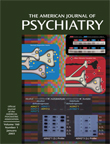Controlled Trials of Psychotherapy
To the Editor: J. Stuart Ablon, Ph.D., and Enrico E. Jones, Ph.D. (1), reported that interpersonal therapy and cognitive behavior therapy share similar “processes”; hence, they are misleadingly labeled distinct psychotherapies. The authors based this on judges’ ratings of session transcripts from the National Institute of Mental Health (NIMH) Treatment of Depression Collaborative Research Program and on correlations of Q-set items with “ideal-prototype” sessions elicited from experts in interpersonal and cognitive behavior therapy. The authors polemically interpreted these findings to discredit randomized controlled trials of psychotherapy.
Are their methods biased? Perhaps the 100 generic Q-set items (“distant or aloof” [p. 777]), originally designed to measure psychoanalytic psychotherapy, are not comprehensive and cannot discriminate between specific psychotherapies. The Q-set never defined techniques or strategies. The authors’ statistical reification blinded them to real differences between therapies.
Which “experts” defined the ideal sessions? I twice failed, as did several interpersonal therapy experts I solicited, to answer the questionnaire, finding it unrelated to the essentials of interpersonal therapy and unlikely to discriminate among treatments. If the authors’ study worked from faulty templates (and transcripts rather than sessions tapes), no wonder Drs. Ablon and Jones confounded two overlapping but distinct treatments. At a conference, I once asked the participants about instrumental bias; they simply denied it. The article by Drs. Ablon and Jones did not discuss this limitation.
Adherence (2, 3) and other measures (4) are used to discriminate between interpersonal and cognitive behavior therapy, as can any clinician with casual familiarity. Of course, psychotherapies overlap: “common factors” (5) have long been acknowledged as essential to treatment (even for pharmacotherapy [6], which even the authors might accept is not cognitive behavior therapy) and are responsible for significant outcome variance. A supportive alliance provides common ground, allowing therapists to use different techniques, which may then make a difference. Hence, the sometimes different showings of interpersonal therapy and cognitive behavior therapy in randomized controlled trials, e.g., the advantages of interpersonal therapy for more depressed patients in the NIMH Treatment of Depression Collaborative Research Program and HIV-positive depressed patients (7) and the advantages of cognitive behavior therapy for bulimia nervosa (8). Drs. Ablon and Jones reinvented the common factors, artificially conflating them with therapeutic equivalence and blurring actual distinctions.
1. Ablon JS, Jones EE: Validity of controlled clinical trials of psychotherapy: findings from the NIMH Treatment of Depression Collaborative Research Program. Am J Psychiatry 2002: 159:775-783Google Scholar
2. Hill CE, O’Grady KE, Elkin I: Applying the Collaborative Study Psychotherapy Rating Scale to rate adherence in cognitive-behavior therapy, interpersonal therapy, and clinical management. J Consult Clin Psychol 1992; 60:73-79Crossref, Medline, Google Scholar
3. Markowitz JC, Spielman LA, Scarvalone PA, Perry SW: Psychotherapy adherence of therapists treating HIV-positive patients with depressive symptoms. J Psychother Pract Res 2000; 9:75-80Medline, Google Scholar
4. Gibbons MB, Crits-Christoph P, Levinson J, Gladis M, Siqueland L, Barber JP, Elkin I: Therapist interventions in the interpersonal and cognitive therapy sessions of the Treatment of Depression Collaborative Research Program. Am J Psychother 2002; 56:3-26Crossref, Medline, Google Scholar
5. Frank J: Therapeutic factors in psychotherapy. Am J Psychother 1971; 25:350-361Crossref, Medline, Google Scholar
6. Krupnick JL, Sotsky SM, Simmens S, Moyer J, Elkin I, Watkins J, Pilkonis PA: The role of the therapeutic alliance in psychotherapy and pharmacotherapy outcome: findings in the National Institute of Mental Health Treatment of Depression Collaborative Research Program. J Consult Clin Psychol 1996; 64:532-539Crossref, Medline, Google Scholar
7. Markowitz JC, Kocsis JH, Fishman B, Spielman LA, Jacobsberg LB, Frances AJ, Klerman GL, Perry SW: Treatment of depressive symptoms in human immunodeficiency virus-positive patients. Arch Gen Psychiatry 1998; 55:452-457Crossref, Medline, Google Scholar
8. Agras WS, Walsh T, Fairburn CG, Wilson GT, Kraemer HC: A multicenter comparison of cognitive-behavioral therapy and interpersonal psychotherapy for bulimia nervosa. Arch Gen Psychiatry 2000; 57:459-466Crossref, Medline, Google Scholar



